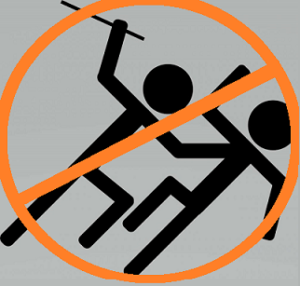
Violence, power and change
The idea of ’violence’ in Arendt’s discourse has the sense of a means or instrument of coercion that constitutes resources to the exclusive and sovereign service of a given authority (or entity), in the exercise of a given form of power, in the last instance State, or to whom it delegates power, but can be seen and developed also for daily life.
of coercion that constitutes resources to the exclusive and sovereign service of a given authority (or entity), in the exercise of a given form of power, in the last instance State, or to whom it delegates power, but can be seen and developed also for daily life.
What was of interest to Hannah Arendt was to understand the mechanisms of violence in the sense of instrumentalising violence to serve certain political ends, and in the paradigmatic cases, whether the revolutionaries or the fascists, as always having a violent option.
The concept of revolution, according to Arendt, is not only related to change but, above all, to the foundation of liberties, and in this sense, it may make little sense when one has nuclear weapons, cyber wars or even targeted propaganda of hatred as violence.
Of course Hannah Arendt did not live to see the modern media, and could not assume a world where the fact could be manipulated in order to modify the truth, the so-called post-truth, but this paradigm already existed and was dealt with in Hans-Georg’s book Gadamer Truth and Method, both were contemporary and suffered strong influences from Heidegger.
It was of no interest to Arendt, any study of the nature or mechanisms that develop the instincts of aggression or the investigation into the possibility of such phenomena having an intrinsic origin to the subject itself or the hypothesis of being merely the result of a process of acculturation areas of war, misery or exclusion.
In speaking of the trivialization of evil, the violence completely instrumentalised, he thought of a situation of war, but the return of social instruments of coercion and repression can and should bring the theme of violence back: discrimination, hatred and instrumental violence.
Even worse if it comes under the seal of part of the population, what happened in fascist regimes: “the diminution of power, whether individual, collective or institutional is always a factor that can lead to violence … very present of the present glorification of violence is caused by the severe frustration of the faculty of action of the modern world ” (Arendt, 2009, 62).
When we think of violence, in the sense of the banalization of Hannah Arendt, we are saying who is “in power” in reality: “we refer to the fact that he was taken over by a certain number of people to act in the name […] without a people or group there is no power “(Arendt, 2009, pp. 60-61).
Day-to-day violence is a problem, but instrumentalized is big problema.
ARENDT, H. Sobre a violência (About violence). Trad. André de Macedo Duarte. Rio de Janeiro: Civilização Brasileira, 2009.









